« January 2024 | Main | March 2024 »
February 29, 2024
Naked Lunch, first printing, Grove Press, 1959.
Posted by JD Hull at 06:49 PM | Comments (0)
February 28, 2024
Like to thank the little people
Taken in 2023, this is the most unflattering Marco Island birthday photo I could find. There isn’t even a beach in it. I didn’t get to MI for my birthday this year. But, even better, I did get to see my energetic peripatetic way-youthful mom Penny Hull in Atlanta last month. Penny looks better than I do. She’s also nicer. And thank you everyone for the great birthday greetings yesterday and today. Appreciated. I like birthdays. Well, mine, anyway.

Posted by JD Hull at 11:04 PM | Comments (0)
February 27, 2024
Herman Hesse jokes with The Immortals
Eternity is a mere moment--just long enough for a joke.
--Hermann Hesse's version of Goethe, dead, possessed of a superior perspective, and speaking to Harry Haller, in Steppenwolf (1927).

Posted by JD Hull at 11:34 PM | Comments (1)
Print of Sonning Bridge, River Thames, England. Charles Rosenberg. Published for S. Ireland, 2 May 1799.

Posted by JD Hull at 11:06 AM | Comments (0)
February 26, 2024
James Baldwin’s “Tell Me How Long The Train's Been Gone."
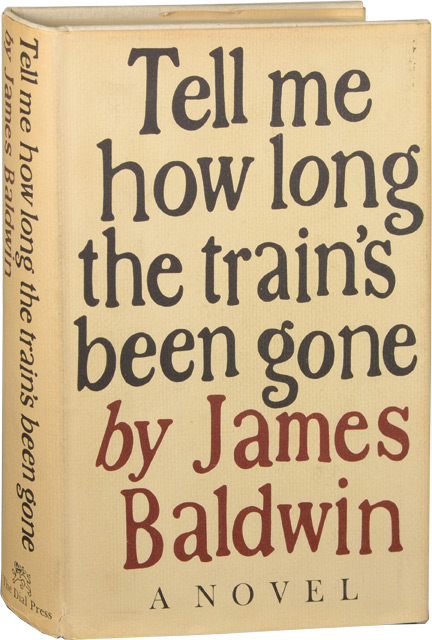
An essayist at heart, American novelist, poet and playwright James Baldwin (1924-1987) wrote his experimental fourth novel about the life of Leo Proudhammer, a black stage actor raised in Harlem who moves to Greenwich Village. Proudhammer has a heart attack on stage. Published in 1968, and panned by critics but widely read, "Tell Me How Long The Train's Been Gone" is an incredibly intense coming of age story set the 1930s and 1940s about racial prejudice, the American experiment, family, faith and sexuality.
Posted by JD Hull at 12:00 AM | Comments (0)
February 24, 2024
World Famous, Highly Correct, Way-Annoying 12 Rules of Client Service
.jpg)
1. Represent only clients you like.
2. The client is the main event.
3. Make sure everyone in your firm knows the client is the main event.
4. Deliver legal work that changes the way clients think about lawyers.
5. Over-communicate: bombard, copy and confirm.
6. When you work, you are marketing.
7. Know the client.
8. Think like the client--help control costs.
9. Be there for clients--24/7.
10. Be accurate, thorough and timely--but not perfect.
11. Treat each co-worker like he or she is your best client.
12. Have fun.
Copyright 2005-2022 John Daniel Hull and Julie Elizabeth McGuire. All Rights Reserved.
Posted by JD Hull at 12:59 AM | Comments (0)
Redux: In Praise of Structure
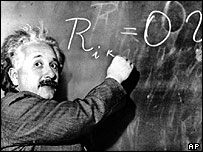
Do lawyers know how to get things done, done right and done on time? Do we even value that?
I wonder.
No, I am not talking here about the simple "keeping face" or survival requirements of meeting client deal or court deadlines, or even about the clichés of "working hard", creative thinking, "out of the box" thinking, being persistent, or "working smart".
I mean structure--a real standard for working--and "practicing structure" every day. It's the discipline of: (1) having a plan or strategy for any one project (client or non-client), (2) meeting internal project deadlines (not just "jurisdictional" ones) no matter what, and (3) insisting that everyone in your shop "buy into" the discipline of keeping to that overall plan or strategy and timetable.
"Structure" is not just the hard process of getting things done. It's a frame of mind and a value which must be sold to others in your shop--like the importance of making that 5 minute call to a client about a loose end at the end of the worst day you can remember, even while you could do it the next morning at 8:00. It's realizing that letting anything but emergency tasks "slide" makes you inefficient, unlikely to meet your real goals, and tired.
Do you go into work every day with an idea of what needs to be done on each project, and knowing the difference between "important" and "urgent"?
Example: Monday is your deadline to have the final changes and notes to your web designer on your new firm website, an important but not urgent project you've talked about at internal meetings for months. So far, for once, you have been on track.
But on Monday a longstanding client calls with two new projects; the new projects are exciting but not THAT urgent in the sense they need to cut into internal deadlines and other goals for Monday. You need to take some first steps, though, to get on top of the new matters for your client. After all, these folks are the main event.
So we have a key ongoing internal project v. new client project. Which gets the most attention that day? Which slides?
Answer: they both get attention, and neither slides. The website (long-term important) and the new client project (short term important) are both critical projects.
Years ago, the Stephen Coveys and Edwards Demings out there pointed out that business people burn themselves out by waiting around only for "the urgent" in a kind of manic crisis management that keeps other important things from ever getting done or ONLY getting them done when they morph into a crisis.
For lawyers, other examples would be only respecting deadlines like transaction closing dates and court-filing deadlines--to hell with everything else.
For a long time I've thought that American business schools and the training programs of global and often publicly-traded companies do a much, much better job than do law firms of training recruits to value and adhere to the structure of a plan on an item for action. It's almost as if law school and firms deem us all such "professionals" and "artists" that we are beyond learning skills of project planning and execution.
What a crock. Because you're a lawyer, or other professional (MD, CPA, engineer, broker), you now have a license to be incompetent, semi-competent, or a chronic screw-up on the details of getting much (if not most) of your work done? You're special? An artiste?
Of course not.
Not learning the value of pushing non-urgent but important things along at a steady pace has cost us dearly. As motivated as lawyers often are, our discipline for sticking to anything and seeing it through is often poor; again, unless it's urgent, we just don't see its value. Do our best clients run their businesses that way?
This attitude is the norm, and we lawyers--who rarely innovate or take a leadership position on anything in commerce--are just fine, thank you, with it. After all, "all the other law firms" are mediocre on the discipline of getting things done, and have "crisis-only" mentalities. "Why shouldn't we be that way?"
So we waste time blowing off important, but longer-term projects. Worst of all, we send to others in our firms, and especially to younger lawyers, the message:
"No worries--just work on a barely adequate level; don't do things until you have to; and if it's not urgent, let it slide."
From earlier JDH WAC/P? posts, beginning 2007.
Posted by JD Hull at 12:34 AM | Comments (0)
February 23, 2024
'Oh New York City you talk a lot...'
It's not too far back on the highway not so long a ride.
You park the car out in the open you can walk inside.
A little cutie takes your hat and you can thank her ma'am,
'Cause every time you make the scene you find the joint is jammed.--Charles Edward Anderson Berry (1926 - 2017)
Posted by JD Hull at 02:37 PM | Comments (0)
February 22, 2024
London’s Geeklawyer

@Geeklawyer on Dan Hull and What About Clients/Paris?
“Hull? A depraved evil sociopathic neocon beast pretending to love clients to get into their wallets. Then there's his dark side.”
—Geeklawyer, London, 2019
Posted by JD Hull at 12:37 PM | Comments (0)
Anglos, Saxons, Franks, Frisii: Good at Government?
The most civilized nations of modern Europe issued from the woods of Germany; in the rude institutions of those Barbarians we [received] the original principles of our present laws and manners.
--Edward Gibbon, The Decline and Fall of the Roman Empire, Chapter IX (1782)
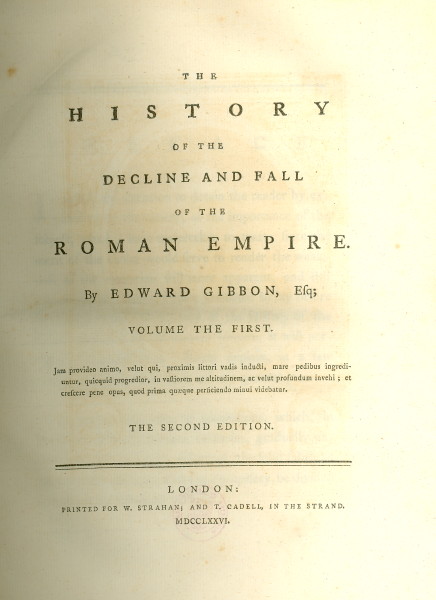
Posted by JD Hull at 12:11 AM | Comments (0)
February 21, 2024
Partner Emeritus: On the Sanctity of Associate Lawyer Privacy Rights.
If you work for a peer firm, you will encounter me or someone very much like me. I or some form of my embodiment will exist to make your existence as uncomfortable and unpleasant as it can be.
-- Partner Emeritus, New York City, September 3, 2009
I've loved practicing law. After three years of working on Capitol Hill, I became one of two associates in the small DC branch office of a now-defunct Pennsylvania firm. They gave me a wonderfully eclectic mix of work to do: environmental litigation, energy law, U.S. Supreme Court practice and lobbying for coal companies and banks. In two years the DC office merged with a bigger DC-based firm. We went from 10 to 35 lawyers. And I went from a window office on Eye and 15th, N.W. off McPherson Square to a smaller no-window office three blocks down the street at International Square. I was a 4th or 5th year associate. I didn't complain. I drew a picture of a sun and posted it on the wall.
Meanwhile, up in New York City, and at about the same time, Partner Emeritus' white shoe firm was negotiating a lease renewal--and the Great Man would have gone one step further:
Back in the early '80s when my firm negotiated its lease renewal, I ardently advocated to take less space as I thought placing associates in offices was a waste of resources. Offices are for closers and relevant playmakers who need personalized space to entertain clients. Given that young associates are not permitted to directly interact with clients, there is simply no need for them to have offices.
One of my pet peeves when I was at the firm was the contumacious habit of associates who closed their doors. Whenever I saw an associate's door closed, I assumed he/she was doing one of the following: 1) taking a nap; 2) checking their private email account (e.g., Ashley Madison, etc.); 3) masturbating; 4) engaging in personal phone calls; or, 5) watching internet porn.
As far as I am concerned, associates do not require privacy unless they are on the commode. I personally took a note of all the associates who closed their doors and would often reprimand them or make a notation on their annual review. If it were up to me, I would have had the building maintenance crew remove the doors off of the hinges but I was outvoted on the matter.
I prefer that associates and non-equity partners share the window cubicles. This way, the partners and staff can easily monitor how busy associates are. Moreover, the window cubicles will keep associates on their toes and prevent them from slacking off.
And please spare me the argument that window cubicles dehumanizes associates by making them feel like zoo animals on display. Unlike the animals in the zoo, trust me, no one wants to waste time watching troglodytes push paper.
--Comment by Partner Emeritus to an article by my friend boy wonder David Lat on August 28, 2015 at Above the Law entitled "More Bad News For Biglaw Associates?"

3rd year associates share 'premium' window cubicle in 1987 (J. Riis).
Copyright 2015 J. Daniel Hull, Ellen Jane Bry, ____ Doe. Best of Partner Emeritus (#6)
Posted by JD Hull at 11:16 PM | Comments (0)
Lower England: Are you a Man of Kent?
As with London, and with the County of Suffolk to the north, from where my mother's family came to Massachusetts via Ipswich 389 years ago, I am completely and hopelessly in love with Kent, mainly the eastern ("Men of Kent") part. The County of Kent is the southeastern doorway to the British Isles--it has even more history, legend and myth than London. Lots, and maybe even too much, has happened here during the past 2500 years. Eventually, in 51 BC, Julius Caesar called it Cantium, as home of the Cantiaci. Augustine founded what became the Anglican Church here in about 600 AD. And of course Thomas Becket, Chaucer's "holy blissful martyr", was killed here (Canterbury) in 1170.

St. John the Baptist, The Street, Barham, Kent
Posted by JD Hull at 11:00 PM | Comments (0)
February 20, 2024
Stand-up Guys: Daniel O'Connell, Trial Lawyer.
Daniel O'Connell (1775-1847), the "Liberator of Ireland", led a movement that forced the British to pass the Catholic Emancipation Act of 1829, allowing Catholics to become members of the British House of Commons. History knows him as a witty, eloquent and formidable politician, and the Member of Parliament for Clare. The English found him infuriating. But O'Connell was first and foremost a consummate and thorough trial lawyer, called to the bar at age 23 in 1798. As a cross-examiner, one modern writer has said, "he had no equal at the Irish bar." And not surprisingly O'Connell was a bit of a showman. In lectures published in 1901, Prof. John L. Stoddard said of him:
He was a typical Irishman of the best stock--wily, witty, eloquent, emotional and magnetic. His arrival in town was often an occasion for public rejoicing. His clever repartees were passed from lip to lip, until the island shook with laughter.
In court, he sometimes kept the spectators, jury, judge and even the prisoner, alternating between tears and roars of merriment. Celtic to the core, his subtle mind knew every trick peculiar to the Irish character, and he divined instinctively the shrewdest subterfuges of a shifty witness.
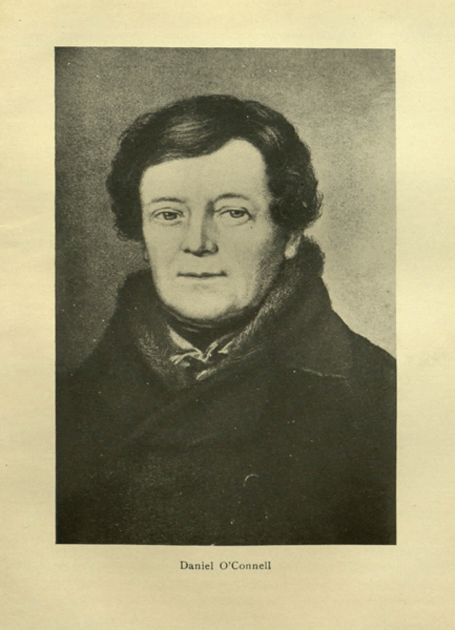
Posted by JD Hull at 11:59 PM | Comments (0)
Tavern Scene, David Teniers, c. 1658
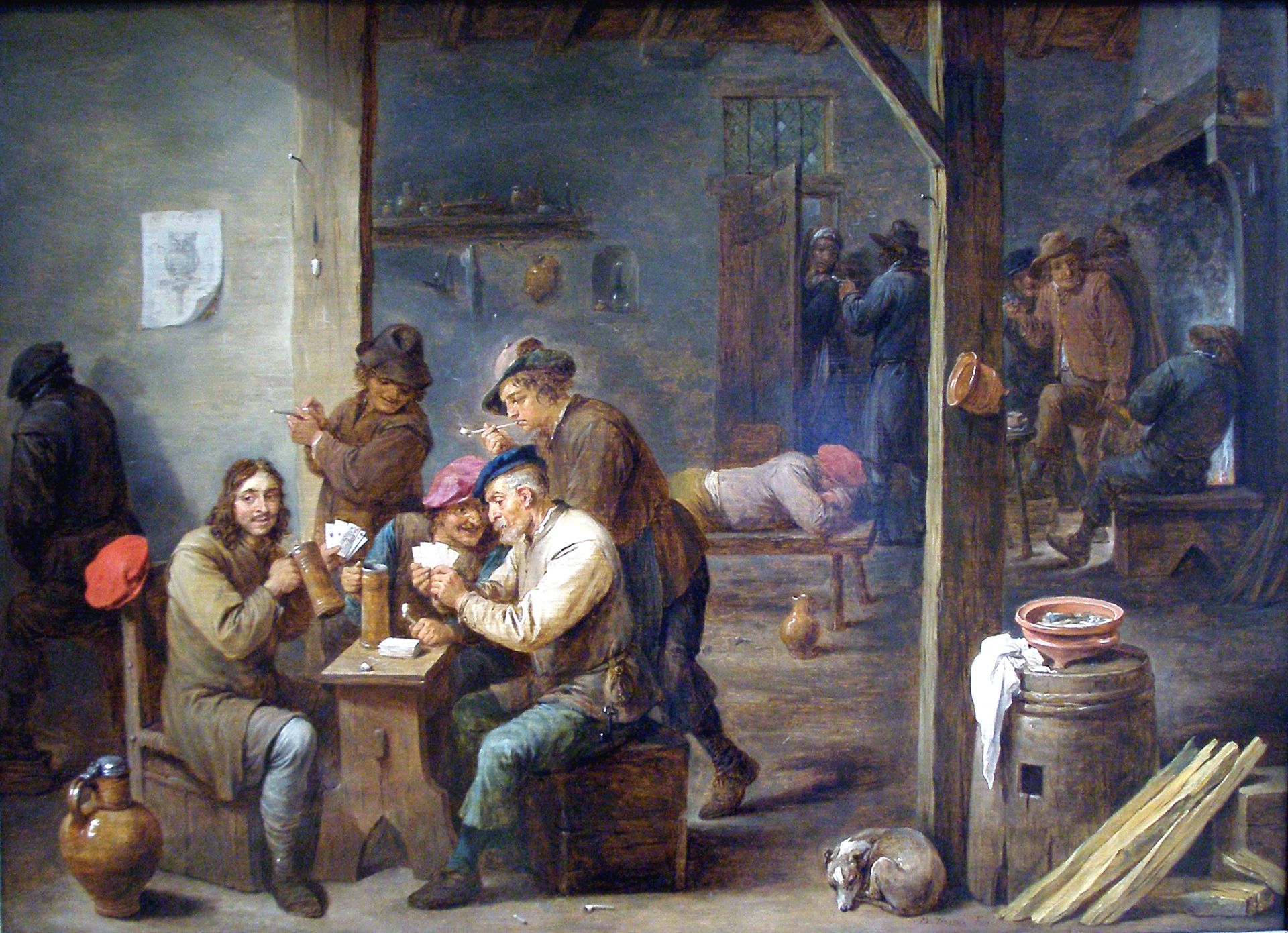
Posted by JD Hull at 09:00 PM | Comments (0)
February 19, 2024
Wordsworth
We no longer require humor in poets. We demand salvation.
— Mark Van Doren, 1950, commenting on the subtle graduation of William Wordsworth (1770-1850) from his role as "nature poet" to one of philosopher who offered hope and reassurance to troubled Europe.
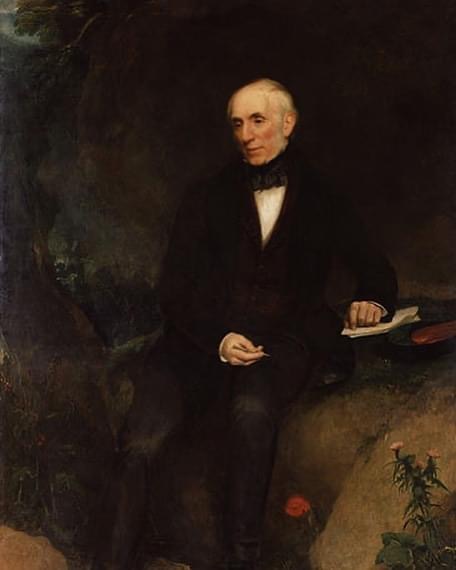
Posted by JD Hull at 10:30 AM | Comments (0)
February 18, 2024
Work-Life Sir Thomas Malory
No one really knows who wrote “Le Morte d’Arthur.“ The best bet is Sir Thomas Malory, a mid-15th century knight and rogue’s rogue. I won’t summarize his crimes and exuberances here but an English nobleman and knight named Malory who died in 1471 was jailed frequently and certainly had time to write. My version (Modern Library, 1999) is nearly 1000 pages long. Its editor Elizabeth Bryan wrote in the introduction that though he “may have been a scoundrel, Malory was also, it seems clear, a man of ideals who believed in courage and loyalty, and who mourned the passing of chivalry.”
Below: Page one from the original manuscript of ‘Le Morte d’Arthur’ published in 1485.

Posted by JD Hull at 07:16 PM | Comments (0)
February 17, 2024
Kundera on Political Obsessives
Immortality, the 1990 novel by the late Czech writer Milan Kundera (1929-2023), is the one book everyone should read to understand ultra-political ‘single-issue’ humans. It’s also been said that “reading it might make you a better lover.” For real.
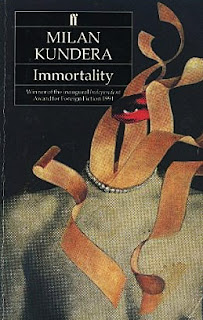
Posted by JD Hull at 11:21 AM | Comments (0)
Stepping away from mediocrity.
This is a 2020 book by an angry, misguided, talented black woman. Some good points here on white male mainstream mediocrity. Assuming she’s right—white dudes are flukes and unwitting scumbags—why not a repatriation or segregation movement by 14% of America? Who needs whites around?
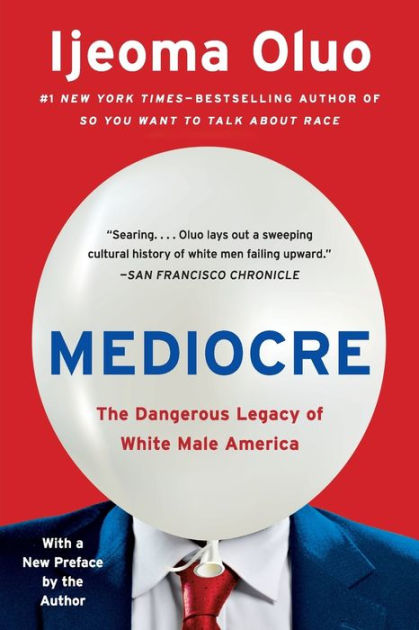
Posted by JD Hull at 10:56 AM | Comments (0)
February 16, 2024
Aldeburgh, Suffolk, East Anglia
Go somewhere different. Meet someone different. Aldeburgh, Suffolk, East Anglia. Always a festival.

Posted by JD Hull at 12:59 PM | Comments (0)
February 15, 2024
The Holy Surprise of Thinking on Your Own
He was a loner with an intimate bond to humanity, a rebel who was suffused with reverence. An imaginative, impertinent patent clerk became the mind reader of the creator of the universe, the locksmith of mysteries of the atom and the universe.
--Walter Issacson, in Einstein: His Life and Universe (Simon & Schuster, 2007)
Children come with Imagination. It's standard issue.--Holden Oliver in 2009
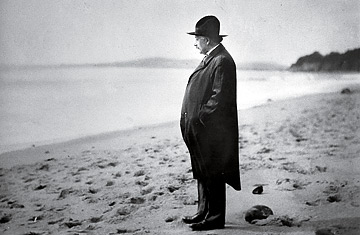
"E" at the beach: Another fresh take.
Try this at home and work: The Holy Surprise of a Child's First Look. Forget for a moment, if you can, about Clients and Paris. This blog is at heart about Quality, Old Verities, and Values--the things no business, government, non-profit group, religion, politician or leader (a) wants to give you or (b) can give you. No, not even family and friends can. You have to find them on your own. Work and Service, whether you are paid for them or not, are inseparable from these things.
At the blog, at our firm, and in our lives, we seek--in the largest sense--serious overachievers, and aficionados of life, past and present: identifying them, learning from them, having them as friends, hiring them and above all, never holding them back. It is often hard to find these people--or even to remember that they once existed. We do, after all, live in a cookie-cutter world. Originality, intuition, authentic spirituality, and even taste are not valued--these traits are often feared and attacked--in most of the West. This is especially true in America, where we continue to be geographically, culturally and (some think) cosmically isolated. The United States, despite its successes, high standard of living and exciting possibilities, has become world headquarters of both moral pretension and dumbing life down. Besides, fresh thinking leads to painful recognitions. It's easier to let something else do the thinking for us.
"Fragmentation" is a word some people (including those with better credentials than the undersigned to write this) have used for decades to describe modern humans all over the world: lots of wonderful, intricate and even elegant pieces--but no whole. So, in our search for coherence, we look for clues. We look to television, advertising, and malls. To work, and to professional organizations. To secondary schools, universities, and any number of religions (none of the latter seem "special"--they say identical intuitive and common sense good things, but just say them differently), and to an array of other well-meaning institutions. In fairness, all of these have their moments (hey, we all like our insular clubs).
And, importantly, we seek answers from others we know and love--family and friends--who have been soaked in the same messages and reveries, who make us feel comfortable with the same choices, values and lives that gnaw at us all in rare moments of clarity and solitude, and who are able to "reassure" us so we can get back "on track".
So what's missing? We think it's Imagination. Children come with Imagination. It's standard issue. Some lucky adults hold onto Imagination, even as it is bombarded with a tricky, confusing, and lob-sided mix of messages favoring mediocrity over quality. Until Imagination becomes a value in and of itself, a lot us will "shuffle off" life on earth without even knowing what happened in the past 80-odd years. We denied ourselves (a) thinking our own thoughts and (b) acting on our own. We would not even fight for these qualities. We would not take chances. We built, embraced and often defended a Cliff's Notes life. We were uninspired, desperate to fit in, and frightened. We "missed it". We missed it All--like drunks who slept through the Super Bowl. Our children, friends and people who respected and loved us even took notes on what we thought, said and did here as "spiritual beings" having a "human experience. They emulated us. That means you and me, Jack. How do you feel about that? Oh well. Next time, maybe?
Which brings us, finally, to Albert Einstein. True, few of us can have Einstein's talent for Western logic, or his IQ. But Einstein's advantage over other physicists may have been that he was a "new soul". He looked at everything as if he were seeing it for the first time. Imagination.
Take work. He approached it from a wellspring of joy. There are, and have been, others like Einstein in that respect. Those are the kind of people we want as friends to inspire us, and as co-workers to solve clients' problems. His IQ and genius is not the point. We'll take an IQ a lot lower than Einstein's (for associates, though, Coif or Law Review would be nice).
Reverence and a child's awe. Imagination. That's the outlook we prize here at WAC? Energy, intensity and creativity always seem to come with it. If it comes with serious brains, we'll take that, too.
From past posts since 2007, and with grateful nods to Samuel John Hazo and Cleveland's Peter B. Friedman.
Posted by JD Hull at 03:59 AM | Comments (0)
Rule 7: Know Thy Client.
Rule Seven: Know the Client
The "12 Rules of Client Service" I have been posting one-by-one starting on November 19 [2006] appear in a booklet Julie McGuire and I prepared internally 5 years ago for associates and non-lawyer staff. We just call it Hull McGuire Practice Guide* (*or how to become a productive associate or paralegal). In the Guide, we call the same rules "Blackletter Rules for Practicing Law". The idea is that each of the twelve overall practice rules harks back to the idea that the client comes first. Clients, clients, clients. For us, that is practicing law. Except for some rewording, the 2 sets of rules are substantially the same. The first six rules are reproduced here.
Several lawyer-bloggers I respect have posted--and in some very eloquent and interesting ways--on the idea of Rule 7, really knowing the client and its culture. I think they say it all. See Tom Kane, Patrick Lamb, Tom Collins and Arnie Herz. Some of the discussion lately was triggered by the nerve jangling report of complaints of some GCs at a Fulton County, Georgia CLE conference in early December 2005. I've chimed in on that, too--here and here.
The client, it seems, actually wants you to know him, her or it. Take time out to learn the stock price, industry, day-to-day culture, players and overall goals of your client. Visit their offices and plants. Do it free of charge. Associates in particular need to develop the habit of finding out about and keeping up with clients (and a client's trials and tribulations) in and out of the areas they are working in. Learn about your client--and keep learning about it. Devise a system to keep abreast.
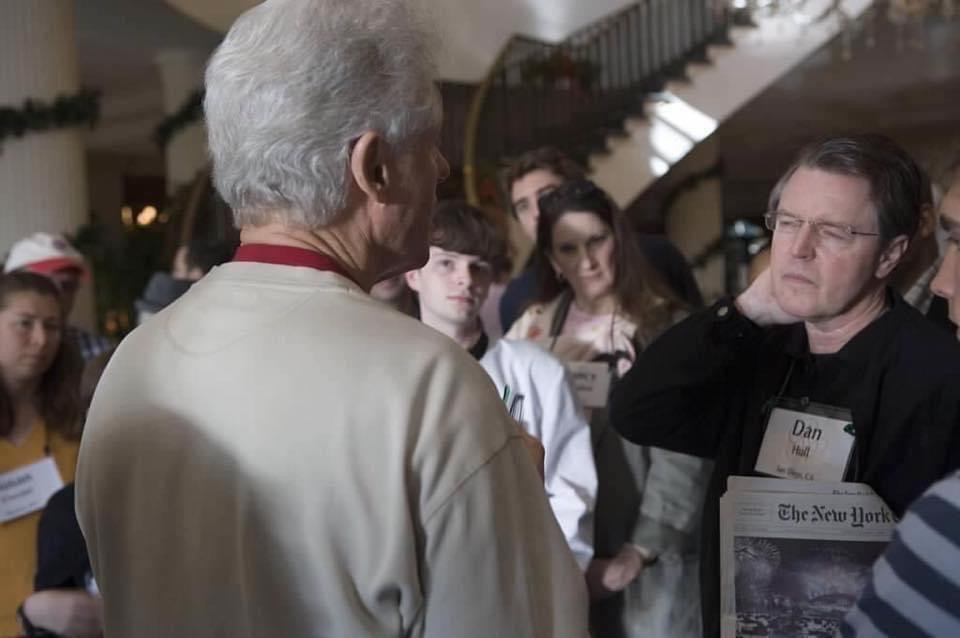
Original post February 3, 2006
Posted by JD Hull at 12:10 AM | Comments (0)
February 14, 2024
“Romeo and Juliet" by Ford Madox Brown (1821-1893)

Posted by JD Hull at 07:01 AM | Comments (0)
February 13, 2024
Fat Tuesday
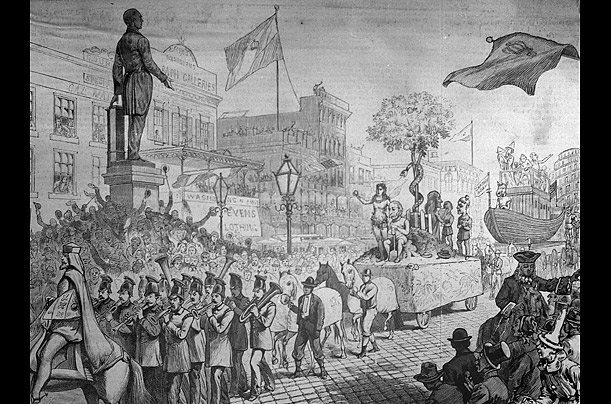
Mardi Gras, New Orleans, Louisiana, 1879
Posted by JD Hull at 11:59 PM | Comments (0)
Catherine Deneuve, 1995.
.jpg)
Catherine Deneuve, 52, in 1995.
Posted by JD Hull at 11:59 PM | Comments (0)
February 12, 2024
State of the West
Based on my various news aggregators and feeds, Western culture is now so fragmented and degraded that we’ve raised minutia and trivia to high art forms, and made heroes out of turds. Am going to ditch my devices and spend more time outside. You’re welcome.
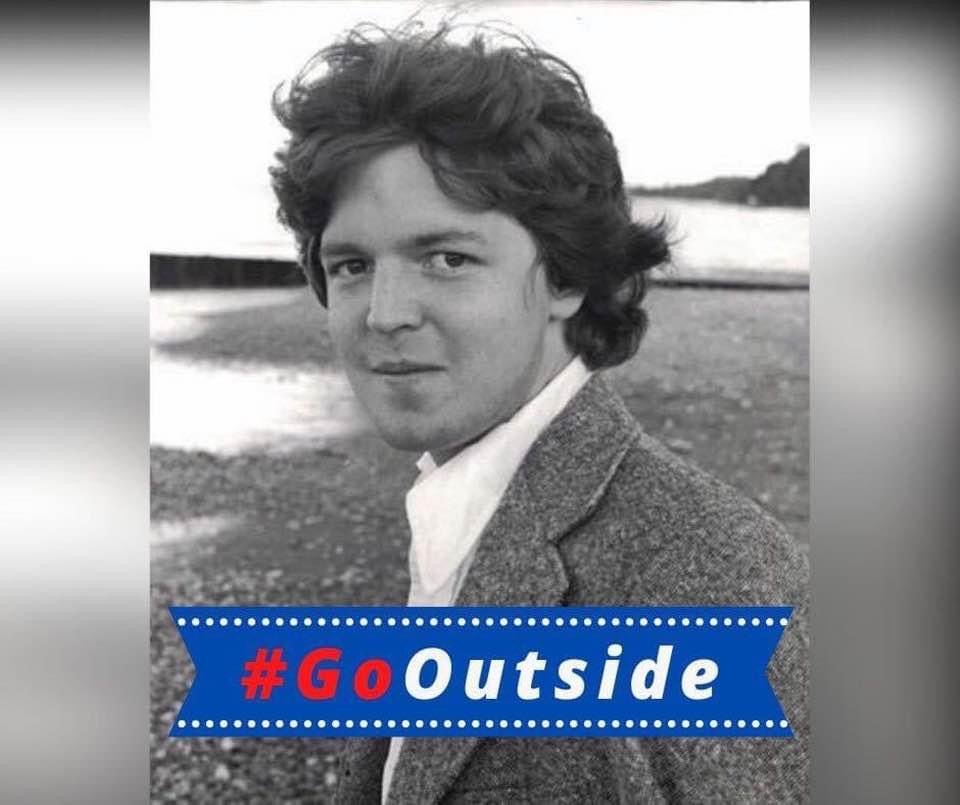
Posted by JD Hull at 01:29 PM | Comments (0)
February 11, 2024
Disraeli on Lawyering: Is law just life on the sidelines?
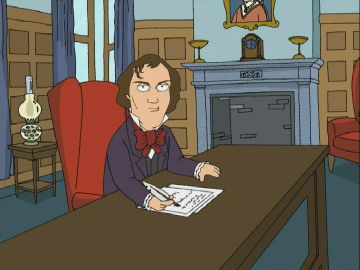
Young Ben Disraeli: "I rust like a Damascus sabre in the sheath of a poltroon."
Is being a good lawyer enough?
Consider what the young, precocious, mega-talented, persistent and world class pain-in-the-ass Benjamin Disraeli (1804-1881) thought--years before becoming Prime Minster of England--as he abandoned his legal career before it really started, in favor of writing and politics. According to one biographer, he exclaimed:
The Bar: pooh! law and bad tricks till we are forty, and then, with the most brilliant success, the prospect of gout and a coronet. Besides, to succeed as an advocate, I must be a great lawyer, and to be a great lawyer, I must give up my chance of being a great man.
--A. Maurois, Disraeli (Random House 1928)
Sidelined? Hobbled? Self-discarded in the great race of life? Maybe it's true. Hard-driving lawyer friends (both in-house and in law firms) do articulate a feeling of being "sidelined"--yet they are very proud of what they do as lawyers. They may think: Why merely advise--when you could lead, create boldly, and command? And do that every day? Lots of lawyers are Type-As. Yes, some of us who advise great companies really end up as officers, CEOs, and COOs? Sure, many more of us run for office.
But most of us are at best mousy posturing technicians. Should more and more of us throw our golfing hat in the ring of other life, the fields of commerce, and bigger--or at least different--ponds? Does law school and the profession make many of us so risk-averse, passive and routinely academic in our approach to life that it knocks the will and energy to lead out of us?
Or were we just that way from the beginning?
Original post: 5.28.06
Posted by JD Hull at 11:51 PM | Comments (0)
Super Bowl Now
I raptly watched the first Super Bowl with my dad and brother in 1967. To us, a jock clan, nothing was cooler. Now Americans also celebrate passivity and sloth. But some violence, even in play, is what humans do, and have always done. Below: Jack Kerouac playing for Columbia
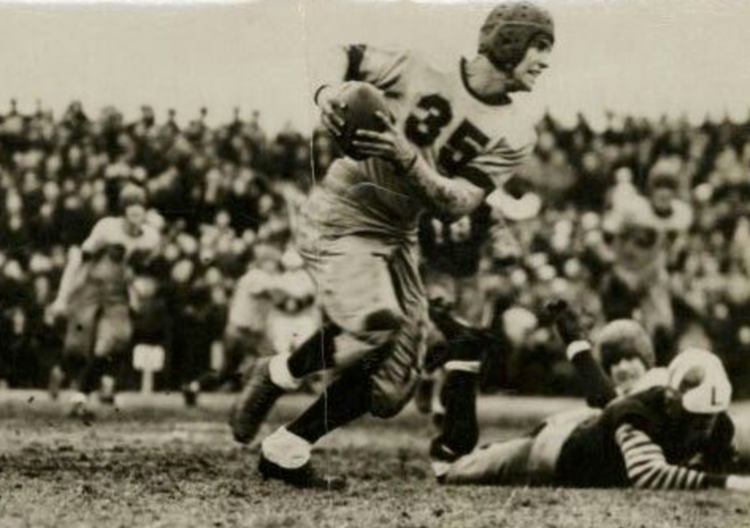
Posted by JD Hull at 09:30 AM | Comments (0)
February 10, 2024
Modern Alcoholics Anonymous: Springboard? Or Permanent Cocoon?

When will my beloved AA get back to getting people clean and sober to participate in real life?
Posted by JD Hull at 11:34 PM | Comments (1)
February 09, 2024
Storytelling for trial lawyers, writers and actual humans in 16 words.
Don't tell me the moon is shining; show me the glint of light on broken glass.
--Anton Chekhov (1860-1904)
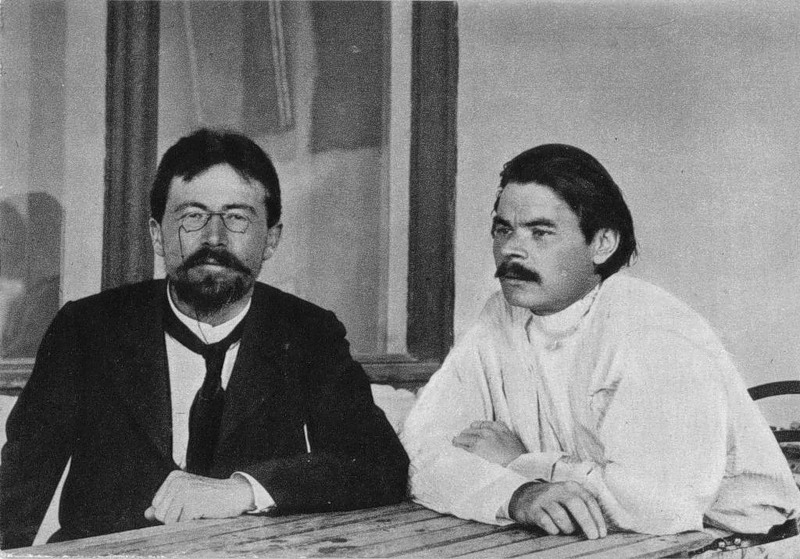
Chekhov with Maxim Gorky in Yalta, probably 1900
Posted by JD Hull at 10:59 AM | Comments (0)
February 08, 2024
Euripides: On Dog Fights
Ten soldiers wisely led, will beat one hundred without a head.
--Euripides (480-406 BC)
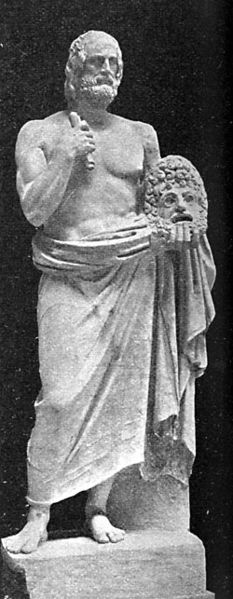
Posted by JD Hull at 11:50 PM | Comments (0)
February 06, 2024
This is East Anglia. Suffolk County. I start here.
Neither the tiny rural village of Lindsey nor the surrounding countryside has changed much since 1634, when one side of my family called Holden left there via Ipswich on the River Orwell for Massachusetts and, in time, a new "Groton", named after another small village near Lindsey. Three hundred and eighty-six years later, Lindsey is pastoral, green, mainly un-peopled and fairly remote. No visible overt 21st century commerce. Some farming. No tourists.
St Peter, a rough Anglican church, at one time Catholic, the one my ancestors attended, built in the 1300s, and even older church ruin, St James (1200s), are the only man-made constants. Still a "parish", Lindsey is on the B1115 Hadleigh-to-Bury road.
This is part of East Anglia--coveted, held and loved for so long by the Danes. The region's been victor and victim over and over again. Mainstream tribes from all over Europe battled here for centuries. It is storied. It is still beautiful. Nothing compares to it.
And it is a key "feeder" region in the English migration to America. From 1625 to 1640, Charles I had tried to rule England without calling the Puritan-dominated Parliament. Puritan dissenters, lots of them, lived in the area around Lindsey, and
from here hundreds of families fled across the Atlantic to the new world. The Winthrops, of tiny Groton, would become founders of the State of Massachusetts. But most of the settlers were poor, working families, and they would devote themselves to quiet, prayerful unpersecuted lives, and of work hard to build new communities. Of course, they would never see Suffolk or the valley of the gentle Brett again.
--Simon Knott

St. Peter in Lindsey
Posted by JD Hull at 11:59 PM | Comments (0)
Wayne Stanley Kramer, 1948-2024
RIP Wayne Kramer. “I’m sick and tired of playing these blues/And I’m sick to my guts of the American Ruse.”

Posted by JD Hull at 09:55 AM | Comments (0)
February 05, 2024
One Night/One Person: Season 9: It's Cold Again, Campers.
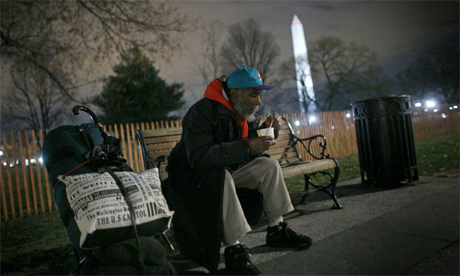
Damn. It’s getting cold again in the northern hemisphere. Cold as a witch’s tit, Jack.
The purpose of this post—which over the years I keep annoyingly if faithfully revising—is simple. To keep these homeless humans alive during the 30 coldest nights of the year by doing something simple and effective for others. And without holding pressers about what great people we are when it’s cold and we help.
Those nights are coming back.
Bear with me.
As a Yankee, Eagle Scout, outdoorsy dude, lifelong camper and all-weather philanderer, let me assure you that spending a night outside in colder weather has unique challenges. Even in the Fall. And generally in the period October through March.
Exposure. The Elements. And hypothermia. Call “it” what you will. Authors Jack London and Hans Christian Andersen each wrote well-known stories about it. And you can die from hypothermia well above 32 degrees F.
You say you would really like to help the urban homeless on both cold and super-cold American Northeastern and Midwestern nights? Chilly, plain cold and the bitterly cold, there are unpredictable nights that many cities are prepared to accommodate more homeless residents at shelters but for a number of reasons (both good and bad) thousands of Americas's rough sleepers take their chances outside?
Good. So see our inaugural post about our One Night, Person (March 5, 2015) campaign and our follow-up March 7, 2015 post. No, we don't have time to go over all of this again; we're working stiffs like you. Just read the posts.
Once again, and in short, here is the idea and the rules:
You're a Yuppie, professional or other generic dweeb between the ages of 22 and 82.You live in towns like New York City, Philly, Boston, Baltimore, Indianapolis, Cleveland, Wilmington, DC or Chicago.
Or similar cities in Europe. Or Asia. Generally? Think Northern Hemisphere. Planet Earth. Wherever Yuppies roam. You may live in the suburbs or in a downtown neighborhood of these cities. But if you work during the day in a downtown area of any of them, you and yours will go forth and do this:
1. Pick out and ask a homeless woman or man what articles of warm clothing she or he needs that you already have at home or in storage--thermal gloves, wool scarfs, warm hats and beanies, big sweaters, winter coats, thermal underwear, socks, etc.
2. Ask just one person at a time.
3. Agree on a time to meet (preferably at the same place) later that day or the next day.
4. Find the winter stuff you have at home or in storage.
5. Bring said stuff to the homeless woman or man as agreed.
6. Nine out of ten times, your new friend will be there when you show up.
7. Wait for forecasts of the next super-cold night--and repeat.

Posted by JD Hull at 10:46 PM | Comments (0)
February 04, 2024
Doing Rome
Comparisons between old Rome and modern U.S. are exciting and instructive. ~ What About Paris?
When in Rome, do as many Romans as you can. ~ Hugh Grant
Rome. I don't like working here--charitably put, work-life balance is totally out of balance in some regions of Italy--but I love being in Rome. You can walk in this city. You can frolic in it. You can play all day long in and around the The Forum and Palatine Hill, where antiquities are still being found. There's a guy with a shop at the Piazza Navona--2000 years ago the Piazza was a Roman circus (i.e., track) you can still see if you try--who sells me these unique old prints, beautifully framed, that I bought for my father in Cincinnati. I go to that shop on every trip. The Tiber River is still gorgeous and, like the Seine in Paris, steeped in history, and a bit melancholy and mysterious. Lots happened here--maybe too much--and it's as if the river can remember it all.
Pannini (1743): Ruins, Chiostre, Statue of Marc-Aurèle
In the West, our strongest ideas and institutions, including what became English law, were conceived or preserved by Rome. The increasingly-made comparisons between Rome and the U.S.--no, they are certainly not new--are still exciting and instructive. The Romans were competent if grandiose empire builders who borrowed their best ideas and forms from a previously dominant Greece, while America's cultural debt is chiefly to western Europe. Like Rome, America tended to overextend itself in all spheres. Like Rome, America was globally aggressive. (Other peoples resented it.) You get the idea.
But you can't see, experience and "do" Rome on one trip--same thing with New York, London or Paris--and you shouldn't try. Our advice: do several trips, and "live in it" each and every visit, taking small bites. And spend your trip with anyone but those from the same nation and culture as your own. If you go there with Americans, break out of that bubble. Politely say goodbye--and disappear into the streets on your own.
Original post: September 15, 2013
Posted by JD Hull at 11:59 PM | Comments (0)
February 03, 2024
Indian Hill
Indian Hill. I miss growing up in Indian Hill, Ohio. A community that protected its own. If I were driving around at 17 and the local cops stopped me, this:
“Why it’s Dan Hull. John Hull’s eldest. Got any beer, dope or cocaine there in your Daddy’s car?”
“No, sir.”
“Would you like some?”

Posted by JD Hull at 10:14 AM | Comments (0)
Writing Well
“You and your firm are judged by every piece of writing that goes out the door.”
--A wise person, possibly Dan White, lawyer-writer-humorist
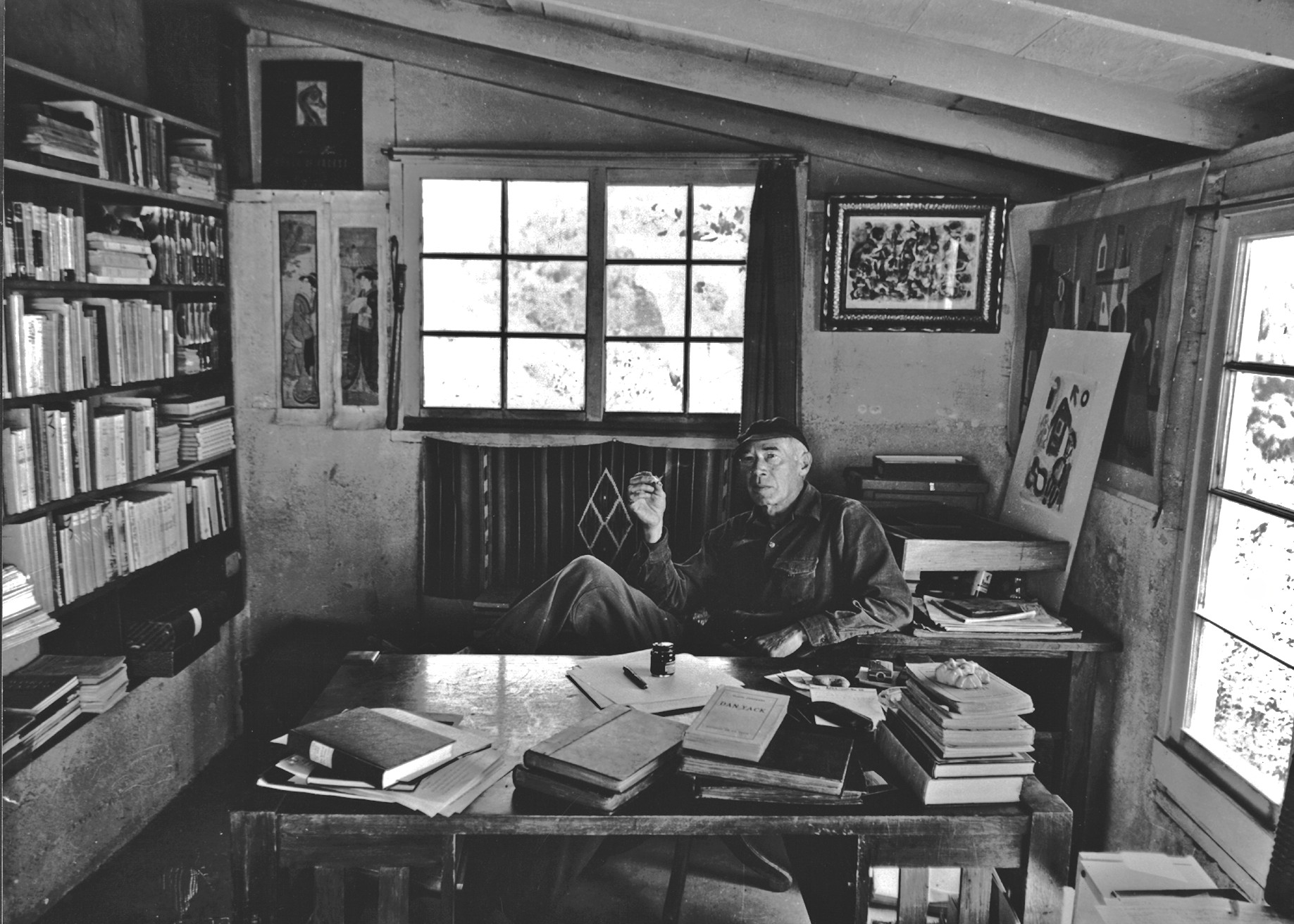
Henry Miller, American writer (1891-1980)
Posted by JD Hull at 01:02 AM | Comments (0)
February 02, 2024
Bring back real dames.
Bring back real women and girls: Annabelle Wallis, English, b. September 5, 1984

Posted by JD Hull at 12:52 PM | Comments (0)